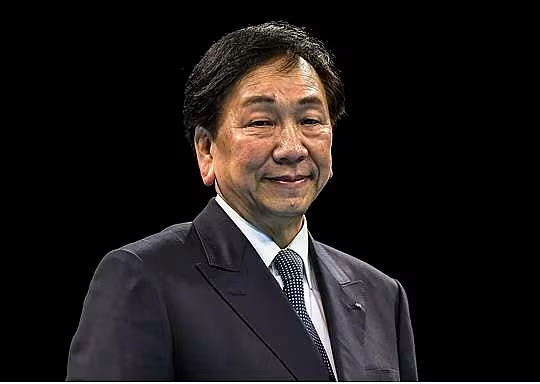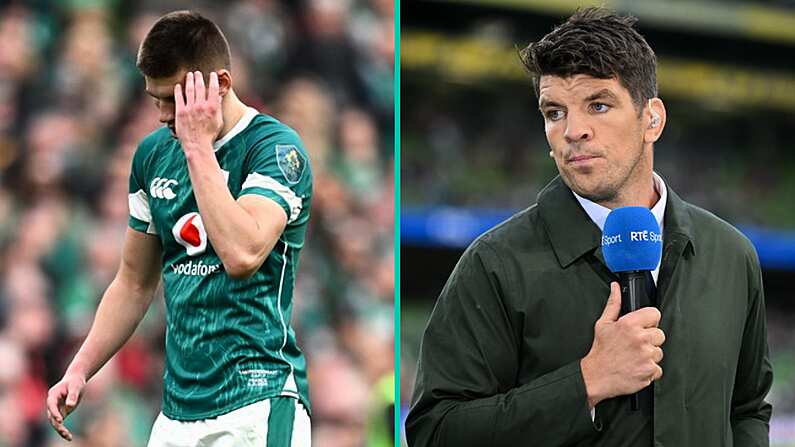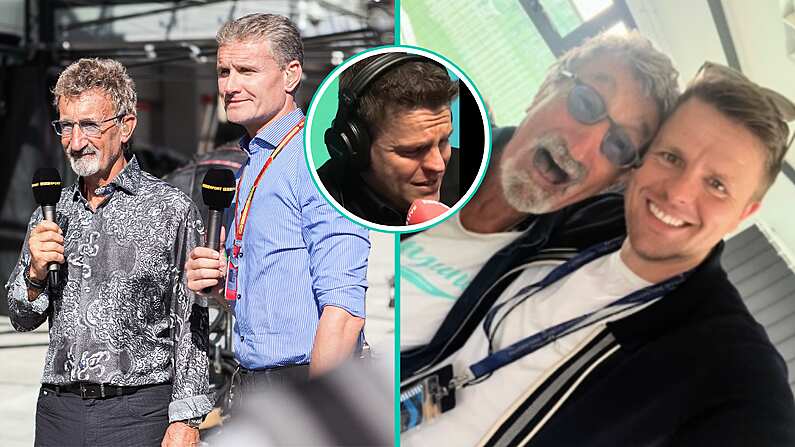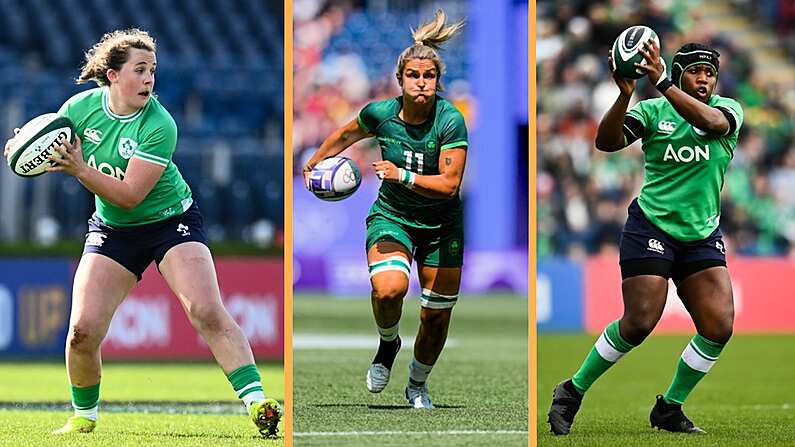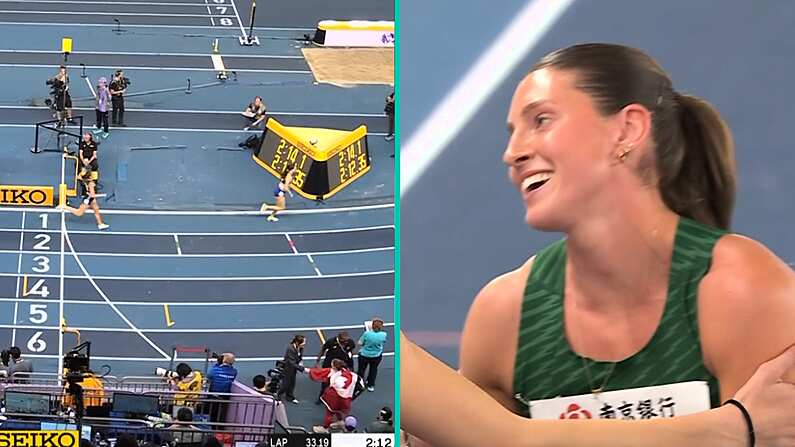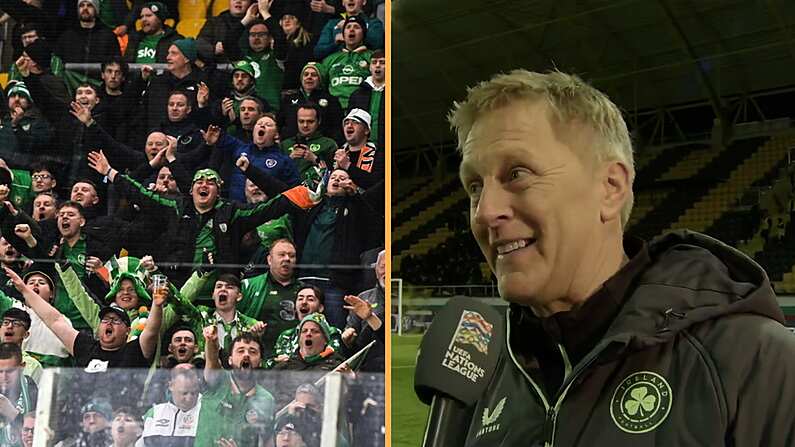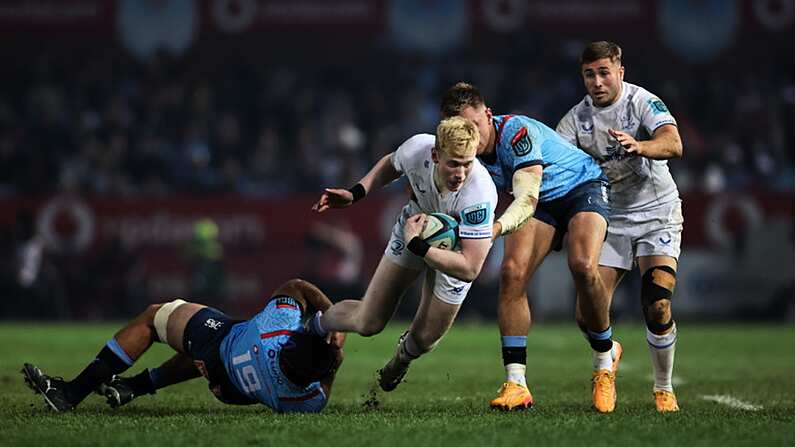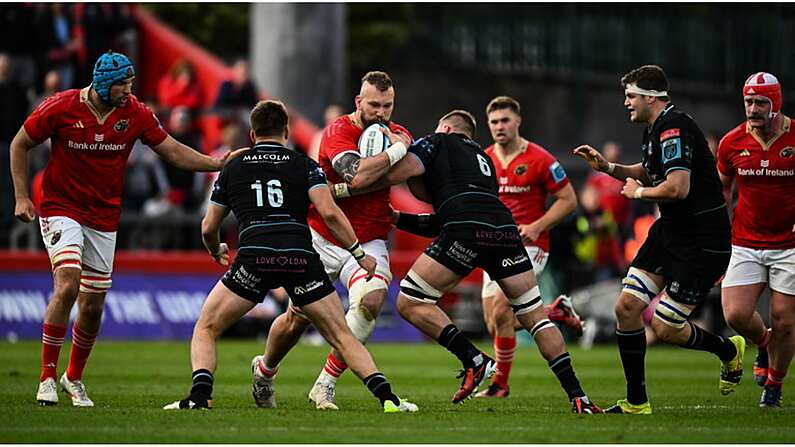We've looked at the men of the year, the women of the year and even the eejits of the year. Now, we're assessing who were the primary enemies of Irish sport. These people did us harm in 2016.
Mr Wu and his colleagues at the AIBA
"Rotten to the core" was Mick Conlan's assessment of the AIBA and no one in this country was going to dissent from that. As we know this is the type of rot that can only set in from the top.
The chief enemy is Mr. Wu Ching kuo, the President of the AIBA.
We prefer to know him as Mr. Wu as it makes him sound like a secondary baddie in a James Bond film, one who is killed off halfway through.
Amateur boxing is hardly more corrupt under his stewardship than it was before he took over in 2006. Hilariously dodgy boxing decisions are a staple of every Olympic games and Roy Jones Jr will tell you that.
But Mr. Wu presided over an Olympics where Irish boxers continually got the shitty end of the stick while the Russians enjoyed a suspiciously good run of luck with the judges. Mr. Wu not only saw little wrong with the scoring in the Conlan-Nikitin outrage, he even said he saw nothing controversial in Evgeny Tishchenko's win over Vassiliy Levit, a verdict which provoked boos from the Rio crowd.
His response after the Conlan outrage was unyielding.
He immediately showed his finger to the referee-judges. The IOC says this is totally unacceptable. You cannot humiliate people. They are officials. He put himself in a difficult position, I can tell you. A lot of disciplinary action will follow. You should show proper behaviour. If you are not happy about the result, you cannot humiliate in public our referee-judges. That has already drawn a lot of people's attention who want to punish him, so we are going to have a disciplinary commission for the case.
Damian Collins, Conservative MP for Folkstone & Hythe
This Tory MP cost Irish football €4,699 through his clever whataboutery. The FA, themselves the originators of the law which bans political symbols on jerseys, asked FIFA whether they were okay to stitch the poppy into their shirts for the England-Scotland game.
To their surprise, FIFA said no, insisting that this would be in breach of Law 4 Para. 4 banning the wearing of political symbols on player equipment.
British society, viciously divided since the summer, was united in fury. Condemnations of FIFA were issued from the prime minister down. From the dispatch box of the House of Commons, Theresa May told FIFA to sort their own house out before they come lecturing Britain.
A sober decision was taken to stitch the poppy in the shirts and stick the finger up to FIFA. They'd take the fine afterwards.
The law surrounding political symbols on jerseys is not one that the international body polices assiduously. With MPs in the UK foaming at the mouth over FIFA's clampdown, one of the most vocal, Damian Collins, the Conservative MP for Folkstone and Hythe, was sent a tweet by a pseudonymous Rangers supporter alerting him to Ireland's Easter Rising commemorative jersey for the Ireland-Switzerland friendly back in March.
Soon enough, Collins was on BBC Radio Five accusing FIFA, not unreasonably, of double standards. Instead of allowing Britain parade their poppies in the same way that Ireland had honoured 1916, FIFA decided to punish Ireland eight months after the event. Ireland's fine came through last week.
"It is insulting to people in this country to say a poppy is one of those [political] symbols" says @DamianCollins on #FIFA poppy ban pic.twitter.com/Cm7WV4Mgdj
— BBC Radio 4 Today (@BBCr4today) November 2, 2016
All because the FAI stitched the government's 1916 centenary logo into their jerseys.
We would have got away with it too if it wasn't for a pesky combination of pseudonymous Rangers fans on Twitter and loudmouth Tory MPs.
Jaco Peyper and Yoann Maestri
Forgetting the recent New Zealand game, Peyper was blamed for facilitating, via his leniency, France's rough-housing of Ireland in the Six Nations championship.
The most notorious incident was Yoann Maestri's gratuitous assault on Johnny Sexton near the end of the first half. The citing commissioner deemed it just short of warranting a red card.
As regards the events of November, the consensus has shifted since the immediate aftermath of the game when rugby country was convulsed by fury. We binged on outrage and were deemed to have lost all perspective
Suffice to say, Peyper is still derided for taking a soft line on alleged Kiwi bullying tactics. Easily included among any list of Irish sporting enemies from 2016.
Dylan Hartley
No stranger to such lists, Hartley came late with a wild swinging arm to ensure his place on the enemies of the year list. Hartley has now racked up a full 60 weeks of bans, meaning that cumulatively he has been banned from playing for just over year.
We draw no inference from this but it hasn't escaped notice that a disproportionate number of his bans arose from incidents involving Irish players.
Johnny O'Connor has been gouged, Stephen Ferris has been bitten, Rory Best has been punched and now Sean O'Brien has been felled by a dangerous swinging arm.
The tenor of the conversation around Hartley's punishment was very different on either side of the Irish Sea. While Neil Francis was openly pondering a lifetime ban, over in the UK, Martyn Williams was pronouncing that it was "never a red."
Judging by his facial expression in the Stand, not even England's entertainingly truculent coach Eddie Jones subscribed to that view.
Lance Armstrong
A perennial contender on enemies of the year last night. Lance makes it this year on account of his eleventh hour withdrawal from the One Zero Conference in October.
We know from Ewan MacKenna's testimony that Lance was spooked by Ger Gilroy's confrontational interviewing style. Lance spent the next fortnight cosying up to MacKenna, ringing him at all hours of the morning, seeking an insight into the line of questioning.
He wasn't sufficiently reassured that the questioning wouldn't be similarly direct and opted to pull out of the conference 24 hours before kick off, citing legal advice.
It's fairly small beer when compared with some of Lance's other sins but it still dropped the conference in it.
Still, as the organisers said, Glastonbury is about more than Beyonce.
Russia
Many, many things went Russia's way this year, often suspiciously so. And none aroused more suspicion that their success in the boxing ring in Rio.
World leaders in the field of state sponsored doping, they faced calls for their banishment from the Olympics this year. IOC bigwigs lined up to defend the Russians from the nasty anti-doping campaigners. You'll be pleased to learn that no one was more prominent in that respect than our own Patrick Hickey.
Russian athletes showed up at the Olympics. After a week and a half, we couldn't help but notice that their boxers appeared to have a fair wind behind them.
The Irish were certainly not the only victims. The day before the Conlon controversy, Evgeny Tishchenko beat Vassiliy Levit by headbutting him in the fist for three rounds. The following day, Vladimir Nikitin adopted a roughly similar strategy against Mick Conlon.
To the horror - but crucially not the surprise - of Irish people watching at home, the judges gave the bout to the Russian. Later on, the news emerged that Nikitin was so badly beaten up in the quarter final that he couldn't contest his semi-final.


